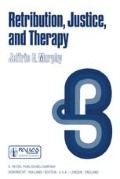Abstract
Kant maintains that guilt is a necessary condition for the legitimate infliction of punishment. Punishment of the innocent is a conceptual and moral pathology. It is largely to avoid such punishment that Kant inveighs against private revenge, vigilante activities, war, and any other activity which allows a disputant to judge his own case and punish according to his own biased decision. Criminal punishment is coercive social power in its most brutal domestic form, and thus it is absolutely essential (in order to preserve freedom) that it be administered only under those procedures of due process found in a just Rule of Law. Such procedures, by securing fairness to the individual, interfere with the utilitarian goals of crime control and criminal rehabilitation. But this, Kant argues, is the price we must pay for liberty and justice.
This essay was originally presented as a lecture at the Third International Kant Congress held at the University of Rochester in 1970 and was published in the proceedings of that Congress. It is an expansion of the discussion of Kant’s theory of punishment in my book Kant: The Philosophy of Right (London: Macmillan, 1970) and has been extensively revised for inclusion in the present volume. It still overlaps other essays in this volume more than I would like, but this could not be avoided without destroying its integrity as an independent essay. Kant’s theory of punishment is presented in his Metaphysische Anfangsgründe der Rechtslehre (1797). Pagination cited in the present essay is from Volume VI of the edition of Kant’s works issued by the Royal Prussian Academy in Berlin. I have relied upon the English translation by John Ladd (Metaphysical Elements of Justice, Indianapolis: Bobbs-Merrill, 1965) which provides the Prussian Academy pagination in the margins.
Access this chapter
Tax calculation will be finalised at checkout
Purchases are for personal use only
Preview
Unable to display preview. Download preview PDF.
Notes
See John Rawls, A Theory of Justice (Cambridge, Mass.: Harvard University Press, 1971).
‘Murder and the Principles of Punishment’, in Punishment and Responsibility (Oxford: Oxford University Press, 1968), p. 79.
Philosophy of Right, translated by T. M. Knox, (Oxford: Oxford University Press, 1952), p. 72.
Letter to J. B. Erhard, December 21, 1792, translated by Arnulf Zweig in his Kant: Philosophical Correspondence (Chicago: University of Chicago Press, 1967) p. 199.
Religion Within the Limits of Reason Alone, translated by Theodore M. Greene and Hoyt H. Hudson (New York: Harper, 1960), p. 33. This sounds very much like John Rawls’ suggestion that certain of our abilities are morally arbitrary because their presence or absence is simply a matter of our “luck on a natural and social lottery.” See A Theory of Justice, op. cit.
For an excellent discussion of these issues, see Joel Feinberg’s ‘Justice and Personal Desert’ in Nomos VI: Justice, edited by Carl J. Friedrich and John W. Chapman (New York: Atherton Press, 1963), pp. 69–97.
Author information
Authors and Affiliations
Rights and permissions
Copyright information
© 1979 D. Reidel Publishing Company, Dordrecht, Holland
About this chapter
Cite this chapter
Murphy, J.G. (1979). Kant’s Theory of Criminal Punishment. In: Retribution, Justice, and Therapy. Philosophical Studies Series in Philosophy, vol 16. Springer, Dordrecht. https://doi.org/10.1007/978-94-009-9461-4_6
Download citation
DOI: https://doi.org/10.1007/978-94-009-9461-4_6
Publisher Name: Springer, Dordrecht
Print ISBN: 978-90-277-0999-8
Online ISBN: 978-94-009-9461-4
eBook Packages: Springer Book Archive

